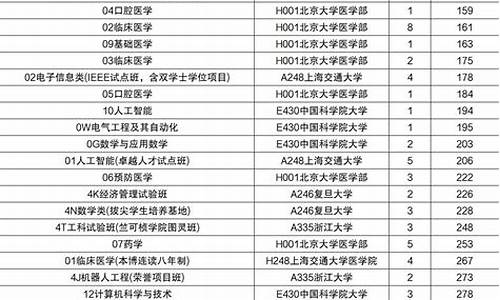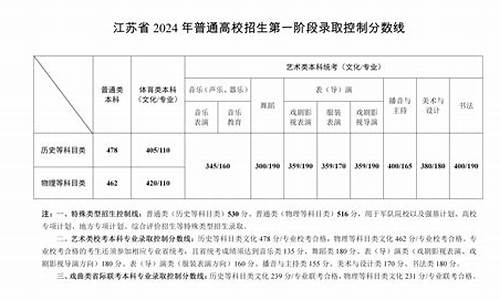您现在的位置是: 首页 > 教育分析 教育分析
高考词汇200句搞定pdf_高考词汇200句
tamoadmin 2024-05-23 人已围观
简介考试总有一些知识是重点,英语也一样,有一些是核心考点,基本上是逢考必有。我整理了45个高考英语高频词汇2020(逢考必有),供大家参考借鉴。 45个高考英语高频词汇2020(逢考必有) 1. cost The ticket cost me ten dollars.(此句中cost用作及物动词,意为“花费”,这是cost的常用法之一。)

考试总有一些知识是重点,英语也一样,有一些是核心考点,基本上是逢考必有。我整理了45个高考英语高频词汇2020(逢考必有),供大家参考借鉴。
45个高考英语高频词汇2020(逢考必有)
1. cost
The ticket cost me ten dollars.(此句中cost用作及物动词,意为“花费”,这是cost的常用法之一。)
The cost of living is much higher now than it was two years ago. (此句中cost用作名词,意为“价格,成本,费用”,这是它的常用法之二。)
cost除了以上用法外,还有 其它 用法。如:
① Has this project been costed? (cost用作及物动词,意为“估价,估计成本”。)
② I must get the book at all costs. (at all costs意为“无论如何,不惜任何代价”。)
③ She saved him from drowning, but at the cost of her own life. (at the cost of sth.意为“以牺牲某事物为代价”。)
2. deal
Teachers should deal fairly with their pupils. (此句中deal用作不及物动词,常和with连用,意为“对待”,这是deal的常用法。)
deal还有其它用法。如:
①She spent a good deal of money on new clothes. (a good deal of意为“很多,大量”后接不可数名词。)
②We tried to make sure everyone got a fair deal. (a fair deal意为“公平的待遇”。)
③My bank deals in stocks and shares now. (deal in意为“经营”。)
④The teacher dealt out the test papers to the students. (deal out意为“分发”。)
3. interest
interest在教材中的意思为“兴趣”和“使感兴趣”,分别作名词和动词用。
The money I borrowed from him was repaid with interest.
What he did was just to protect his own interests.
上面 句子 中的两个interest都作名词用。作“利息”讲时,为不可数名词;作“利益,好处”讲时,多用复数形式。
第一句可译为“我向他借的那笔钱是带息偿还的。”;第二句可译为“他所做的一切仅仅是为了保护他自己的利益。”
4. drive
Can you drive a car? (drive用作动词,意思为“开车,驾驶”,是教材中的第一种用法。)
Let?s go for a drive in the country. (drive用作名词,意思为“驱车旅行”,是教材中的第二种用法。)
除了以上用法外, drive还有其它用法。如:
①The workers carried on a drive for greater efficiency last month. (drive用作名词,意思为“运动”。)
②There are three buses parked on the drive. (drive用作名词,意思为“车道”。)
③Poverty drove the little boy to steal. (drive用作动词,意思为“驱使”。)
④I?m sure that I?ve driven my opinion home.(drive sth. home意思为“把讲透彻,使充分理解”。)
⑤Please drive the dog away. (drive sb./sth. away意思为“把赶跑”。)
5. join v.& n.
What club do you want to join?(此句中的join是及物动词,意为“加入,参加”,这是其最常见的用法。)
另外它还有其它用法。如:
①The two rivers join at the bridge.(此句中的join是不及物动词,意为“会合,联合,相遇”。)
②The two pieces were stuck together so well that we could hardly see the join.(此句中的join是名词,意为“连接处,接缝”。)
6. dream
dream在教材中有两种用法:用作动词时意思为“做梦,梦到”;用作名词时意思为“梦想,幻想”。
dream除了以上用法外,还有以下几种用法。如:
Her new dress is an absolute dream. (dream用作名词,意思为“美丽或美好的人或事物”。)
My aunt?s wedding ceremony went like a dream. (go like a dream是固定 短语 ,意思为“非常顺利,完美”。)
7. know
I?ve known David for 20 years.
I hope we have taught our children to know right from wrong.
The old man has known both poverty and wealth.
know在教材中的意思为“知道,了解”,作动词用。在上面的三个句子中, know都作动词用,第一个know的意思为“认识”;第二个know的意思为“区分”;第三个know的意思为“亲身经历”。
8. fail
If you don?t work hard, you may fail.(此句中fail意为“失败;不及格,没有通过考试”。)
fail还有其它用法。如:
① He never fails to write to his mother every week.
(fail意为“忘记、忽视或未能做某事”。)
② She has been failing in health.
(fail in意为“(健康状况)衰退”。)
③ His friends failed him when he most needed them.
(fail意为“使失望, 辜负”。)
④ I had three passes and one fail.
(fail用作名词,意为“考试不及格”。)
⑤ I?ll be there at two o?clock without fail.
(without fail意为“肯定,一定,必定”。)
9. lead
lead在教材中有两种用法:用作动词时意思为“引导,领导”;用作形容词时意思为“领导的,领先的,带领的”。
除了教材中的用法外,lead还有以下几种用法。如:
Which road leads to the mountain? (lead用作动词,意思为“通向,通往”。)
My grandmother is leading a quiet life in the countryside. (lead用作动词,意思为“过某种生活”。)
Not having a balanced diet can lead to health problems. (lead用作动词,意思为“导致”。)
Her brother took the lead in the high jump. (lead用作名词,意思为“领先地位”。)
In this new film, she is the lead. (lead用作名词,意思为“主角”。)
10. fall
The leaves fall in autumn. (此句中fall用作动词,意为“落下,下降”,这是其常用法。)
fall还有其它用法。如:
①I had a fall and broke my arm. (fall用作名词,意为“跌落,掉下,降落”。)
②Our holiday plans fell through because of bad weather. (fall through 意为“落空,未能实现,成为泡影”。)
③My car is falling apart. (fall apart意为“破裂,破碎,散架”。)
④We fell about (laughing) when we heard the joke. (fall about意为“无法控制地大笑”。)
⑤Sam, please fall back on old friends in time of need. (fall back on意为“求助于,退到”。)
11. low
The sun is low in the sky. (此句中low用作形容词,意为“低的,矮的”,这是low的常用法。)
low还有其它用法。如:
① She?s been feeling rather low since her illness. (low用作形容词,意为“消沉的”。)
② The simplest way to succeed in business is to buy low and sell high. (low用作副词,意为“低价地,廉价地”。)
③ The gas is running low. (run low意为“几乎耗尽”。)
12. blind
She is blind in the left eye. (此句中blind用作形容词,意为“瞎的,盲人的”,这是blind的常用法。)
blind还有其它用法。如:
① The blinds were drawn to protect the new furniture from the sun. (blind用作名词,意为“窗帘,遮光物”。)
② The soldier was blinded in the explosion. (blind用作动词,意为“使失明”。)
③ This is a blind letter. (blind letter意为“因地址写得不清而无法投寄的信件”。)
④ He turned a blind eye to her mistakes. (turn a blind eye to意为“对熟视无睹”。)
⑤ He?s blind as a bat without his glasses. (blind as a bat意为“完全看不见东西的”。)
13. film
大家都很熟悉film作名词时有“**”的意思。
除此之外film还有其它的意思。如:
①I put a new roll of film in my camera. (film在此句中作名词,意思为“胶卷,胶片”。)
②It took them nearly a year to film this TV series. (film在此句中作动词,意思为“拍摄”。)
14. land
The pilot landed the plane safely in the heavy snow. (此句中的land用作及物动词,意为“使着陆”,这是land的常用法之一。)
The journey to the far side of the island is quicker by land than by sea. (此句中的land用作名词,意为“陆地,大地”,这是land的常用法之二。)
除了以上用法外,land还有其它用法。如:
① Many farmers are leaving the land to work in industry. (the land意为“农村,农业”。)
② The car will land you there in twenty minutes.(land用作动词,意为“使到达,把送到某地”。)
③ He?s really landed himself in it this time. (land sb. / oneself in sth. 意为“使某人陷入困境”。)
④ He wants to see how the land lies before taking any action.( how the land lies意为“事态,形势,概况”。)
15. cause
She?s always causing trouble. (此句中cause用作及物动词,意为“使发生,引起”,这是cause的常用法。)
cause还有其它用法。如:
①Smoking is one of the causes of heart disease. (cause用作可数名词,意为“原因,理由”。)
②People fought for the cause of freedom and peace. (cause用作名词,意为“事业,目标”。)
H
hand down把……传下来
hand in把……交进、交上
hang on to紧紧握住……
hang over挂在……上;靠近在……上
hang up把……挂起来;挂电话
happen to…某人某物出了事
hear from接到某人的信
hear of/about听说……
help sb.with在……帮助某人
help sb.out帮某人解决难题等
hesitate about+v-ing(phr.)对做……犹豫不决
hesitate at对某事犹豫
hide sth.from sb.对某人隐瞒……
hurry away/off匆忙离去
hurry up赶紧
I
identify A with B认为A和B一致
idle about/along闲逛,无所事事
idle away虚度时间、年华等
illustrate sth.with 举例说明
import sth.from从……进口
impress sth on/upon sb..使某人铭记某事
impress sb.with给某人留下……印象
impress sth. in [on] one's memory 使...铭记在心
infect…with sth.传染上、感染上
infer sth.from由……推论出
inform sb.of sth.通知、告知某人某事
inquire after问起某人的生活等情况
inquire for询问地点等
inquire of sb.about sth.问某人……
insist on/upon坚持……;坚决主张……
inspire sb.to do激励某人做
insure…against 给……保某种险
interact on相互作用、影响(于……)
interfere with打扰某人;与某事冲突、抵触
introduce sth.into把……引进、输入……
introduce sb.to把某人引荐给……
invest in投资于……
invite sb.to邀请某人到……
isolate…from把……从……隔离开
J
join in参加……
join A to/with B把A和B连结起来
judge by/from以……判断
K
knock down把……击倒、击落;使屈服
know about/of…知道、了解、懂得;听说
L
lag behind落后于……
laugh at因……发笑;嘲笑某人
lay emphasis on 重视
lay off 解雇,停止工作(laid-off worker 下岗工人)
lead to导致、引起……
learn from向……学习
learn of听说、听到……
lend sth. to sb. 把某物借给某人
light up点燃;照亮;
limit…to把……限定在
line up排队
link sth.with把……和……结合起来
link up with与……连接起来、联系着
live on以……为主食;继续活着
live up to实践誓言等;做到;等同
lose heart 灰心
lose one’s temper 发脾气
M
meet with (偶然)遇见、碰见……;遭受
move to搬家、迁移到……
mistake…for把……错认为……
mix sth.with sth.用……和……混合在一起
mix up搅匀、搅和……;混淆……
N
nod sb.…向某人点头示意……
O
object to+sth./doing反对(做)……
be obliged to do sth. 不得不做某事
be obliged to sb. 对某人心存感激
occupy oneself with sth./in doing某人正忙于(做)……
occur to sb.某人想到……
offer sb sth. 提供某物给某人
open into/on/onto 通往、通向……
operate on/upon sb.for…对某人的某疾病开刀
oppose to 反对
owe…to sb.欠某人的……;把……归功于某人
P
pardon sb.for doing 因做……请某人原谅
part with sth.使……与……分离、分开
participate in参加、参与……
pay for偿还……;受到……报应
pay off付清某人的工资、债务等
persist in doing 坚持或执意做某事
persevere in doing 坚持不懈做某事
persuade sb.to do/into doing 说服某人做……
persuade sb.to sth.劝某人使其同意……
pick out挑出、选出……;区别出……;领会……
pick over在……挑选;分档挑选出……
pick up拾起、捡起……;偶然获得知识、信息等
plunge into 投入,跳入
point/at/to/towards指着、指向、面向……、暗示……
point out指出……
be in a position to do 某人有能力做某事
praise sb.for sth.某人因……而受到赞扬等
pray for sb.为某人祈祷
pray sb.for sth.向某人恳求某事
prepare for为……准备
prepare sb.for sth.使某人对……有所准备
present sb. with sth. 把某物给(赠送)某人
prevent sb.from doing阻止某人做……
profit by/from从……中得益;利用……
prohibit sth./doing 禁止某事
prohibit sb.from doing禁止、阻止某人做……
protect…from保护……以免……
provide for sb供养,赡养
provide sth.for sb.//provide sb. with sth.为……提供……
UID63 帖子262 精华2 积分872 阅读权限100 在线时间59 小时 注册时间2007-11-10 最后登录2008-4-3 查看详细资料
TOP









